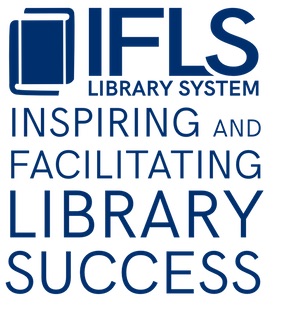Resources on Accessibility and Inclusion
Not finding what you need here? Use this search box to search the Article Index.
Service Animals
The only service animals covered by the Americans with Disabilities Act are dogs and in rare cases miniature horses.
Under Wisconsin law, you can ask only one question related to service animals:
- Is that a service dog needed because of a disability?
DO NOT:
- Ask what the disability is
- Ask what task the animal has been trained to perform
- Require the dog to perform the task
- Ask for registration information or paperwork
Dogs MUST behave appropriately (no aggression, barking, or bathroom accidents) and be on a leash or if necessary under control with voice and hand commands.
More information
Issue Brief: Service and Support Animals from the Wisconsin Legislative Council is specific to Wisconsin law.
Disability Rights Wisconsin Service Animals Page has a page that is specific to Wisconsin State Statutes related to service animals, including information about service animals in training
Fact Sheet #5: Service Animals from the ADA National Network is a 2-page summary of what is expected of public entities and of the person with a disability. Because Wisconsin law provides greater protections (related to the questions allowed), Wisconsin establishments need to follow Wisconsin law.
ADA Requirements: Service Animals from ADA.gov.
Toolkits and Guides for Library Staff
The Inclusive Library Spaces and Programs for Young Children Library Program Self Assessment (2025) is a 7-page check-list to help you evaluate your library’s offerings for young children and their families. Produced by the SCALE project at the University of Kentucky, University of Missouri, and Emporia State University.
Inclusive Services Assessment and Guide, Wisconsin Department of Public Instruction
- Designed in 2018 by Wisconsin public library and system staff to be used by individuals and groups as an ongoing reflection tool
- Complements the 2018 Wisconsin Public Library Standards and supports the 2019 Inclusive Services Statement.
- For more on using the rubrics, consult the DPI Inclusive Services page
ASGCLA Toolkit: The Association of Specialized Government and Cooperative Library Agencies (ASGCLA) created eighteen toolkits to help librarians “understand and manage access issues” related to a variety of physical, cognitive and developmental disabilities, as well as mental illness. The toolkits are now at the RUSA division of the ALA. You can find individual toolkits here:
- Accessible Communication Styles
- Assistive Technology
- Autism Spectrum Disorders (ASD)
- Blindness and Low Vision
- Children with Disabilities
- Deaf or Hard of Hearing
- Developmental, Cognitive, and Intellectual Disabilities
- Learning Differences
- Library Staff with Disabilities
- Management
- Mental Health Issues
- Multiple Disabilities
- Patrons with Alzheimer’s and Related Dementias
- Service Animals
- Virtual Accessibility
- Volunteers with Disabilities
ALSC Library Services to Underserved Children and Their Caregivers Toolkits
- Trauma Toolkit (September 2024)
- Spanish Speaking Populations (December 2020)
- New Americans (February 2022)
- Financial and Housing Insecurity (October 2020)
- Children with Print Disabilities (April 2021)
- Autism and Sensory Processing Disorder (May 2022)
- Access to Technology (February 2021)
Cornell University Accessible Meeting and Event Checklist A simple, two-page check-list to ensure all participations, including those with non-obvious disabilities, chronic health conditions, and all body types, are able to participate in a program.
National Center on Disability and Journalism has a Disability Language Style Guide (also available in Spanish) to help you keep up with the changes in language, perceptions, and social mores, with tips on verbal and written communication to be as inclusive as possible of people with disabilities.
Making Storytime More Inclusive in the IFLS Storytime Resources article.
Home Delivery and Outreach to Institutions in the IFLS Article Index provides tips and several possible models
Education
Autism-Ready Libraries Toolkit from the University of Washington iSchool contains free online training modules and resources for staff in public libraries who would like to better serve families with autistic children. The first module is more broad and includes information and resources on autism acceptance and inclusion at the public library.
Project ENABLE is a self-directed learning opportunity from Syracuse University for librarians to learn about creating accessible services and programs for students with disabilities.
Project READY is a self-directed learning opportunity from the University of North Caroline School of Information and Library Science that includes free, online professional development modules for school and public youth services librarians and other sinterested in improving their knowledge about race and racism and racial equity.
Wisconsin Libraries Talk About Race is a collection of archived webinars, reflection questions, and additional resources for self or group study.
Ryan Dowd Training and Recorded Webinars
Ryan Dowd’s Homelessness and Libraries is a 3.5 hour self-paced training. This training will be available through December 2023, thanks to a statewide subscription. Look here for tips about empathetic rule enforcement and de-escalating challenging situations with all patrons, with some specific information and education about homelessness. In addition, recordings of monthly hour-long webinars about a variety of relevant topics are archived in the same location.
Click here to start your training now. Sign up using your library email address.
